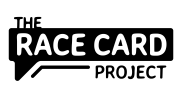

 Ann Hirschhorn,
Ann Hirschhorn,
Silver Spring, MD.
My parents grew up in a time where interracial couples were criticized for diluting the race of their children. My father expressed a fear that because I was of a mixed race background, I might not feel that there was a culture or place where I belonged. My mother grew up in the Philippines, within a culture where whiteness was prized and being mestiza was preferable to being a full Filipino. Because of this I grew up constantly being told how lucky I was to be mixed, to have the best of both worlds, to have experiences in both cultures. They bought me books like "Who am I?" and reflected to me a narrative of my life where I got to experience things much more interesting and diverse than my peers. I believed it made me special. But then, there were the times that I also felt that I didn't belong. The only Filipino in Hebrew school, B'nai brith, to have a bat mitzvah. Using Filipino words for private parts and bathroom talk avoided the possibility that I use a "bathroom word" that anyone would recognize at the wrong time.
It also led to a lot of confusion when I didn't know the same potty words as everyone else. (I didn't know what an armpit was until 4th grade!) With my mother's family when Taglish and kapampangan words were thrown around with the assumption that I would know and recognize them. Feeling stupid or not Filipino enough when I didn't know what they said or how to respond. Being biracial has meant for me that I was often confused in a place where I was supposed to feel at home. It meant being both and insider and an outsider in two very different worlds. It did also mean, that I got to experience some of the best of both of those worlds. I got to feel a part of both the Filipino, Jewish and American narrative. Holding inside of me a place where all those things could intersect. Living with cultural conflicts in my home gave me the ability to think critically and to take ownership of my worldview. By virtue of having two, often opposing views, in one family, in one home, I learned that there were many ways to understand myself and the world. I do feel profoundly lucky to have the experiences that I have of being Filipino, white, Jewish, mestiza, mixed, hapa. But it was important to me to own both the beauty and the struggle.



